April 8 ,2021
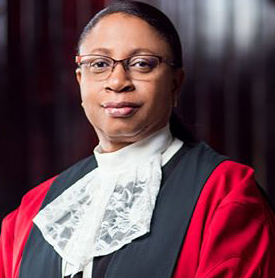
Chief Justice Roxane George-Wiltshire
-CJ sets April 26 as tentative date for decision
April 26th has been tentatively set by Chief Justice Roxane George-Wiltshire SC, to rule on the petition filed by the main opposition APNU+AFC which is challenging the results of last year’s general and regional elections.
The Opposition had filed two petitions challenging the results. Back in January, however, Justice George-Wiltshire dismissed the other petition after finding that the Party’s presidential candidate David Granger was not served on time.
The other petition on which she is now set to rule, came up yesterday for arguments, during which Senior Counsel John Jeremie on behalf of the petitioners advanced that Section 22 of the Election Laws Amendment Act (ELAA) by which the Guyana Elections Commission (GECOM) created Order 60 for the recount of votes from the March 2nd, polls was unlawful.
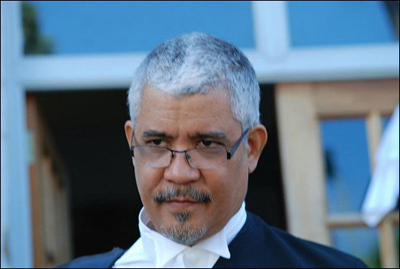
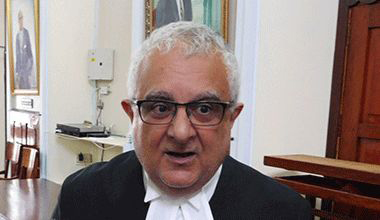
Douglas Mendez Anthony Astaphan
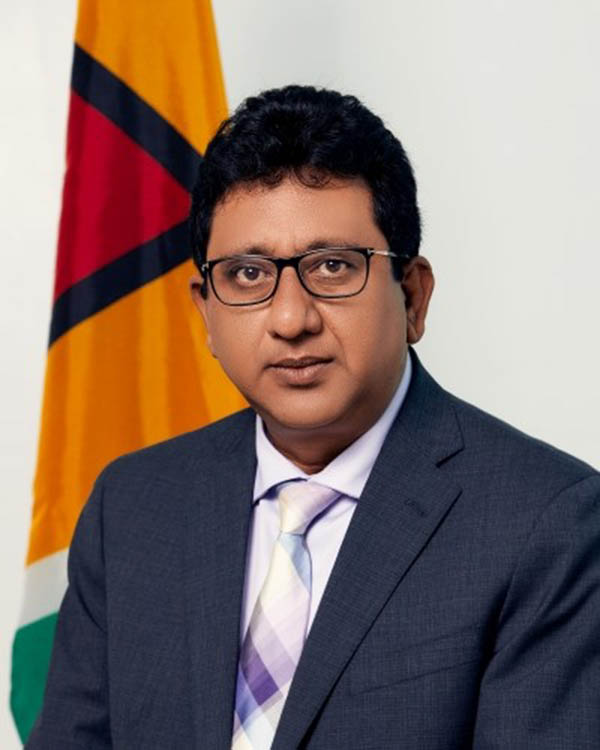
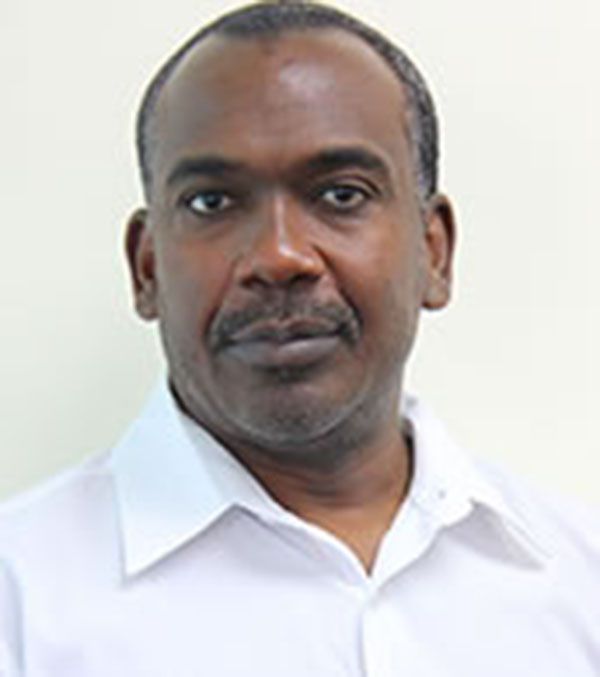
Attorney General John Jeremie
Anil Nandlall
His advancements were, however, met with objections from attorneys for the respondents who, in rebutting his submissions, said that the Commission was in fact empowered by the very Act, to resolve the difficulties with which it had been confronted.
Jeremie’s argument on behalf of petitioners Claudette Thorne and Heston Bostwick, is that Order 60 is “bad” in law because it was brought into force by an unlawful piece of legislation—Section 22 of the ELAA.
The petitioners want the court to determine among other things, questions regarding whether the elections have been lawfully conducted or whether the results have been, or may have been affected by any unlawful act or omission and in consequence thereof, whether the seats in the National Assembly have been lawfully allocated.
Senior Counsel Douglas Mendes, Anthony Astaphan and Attorney General Anil Nandlall who represent various respondents in the matter, have all, however, rejected Jeremie’s position, arguing that where certain difficulties arise in respect to an election, Section 22 empowers the Commission to resolve the difficulties.
Jeremie’s contention on the other hand, is that the difficulties surrounding the results which arose, ought to have been dealt with by way of elections petition, and not any order by GECOM under Section 22.
In response to a series of questions from the Chief Justice, Jeremie agreed that regarding the credibility of the election results, there were difficulties with which the Commission had been confronted; but held resolutely to his view that those needed to be dealt with by the High Court’s exclusive jurisdiction through a petition.
His resolute position is that, that power could not be delegated by Parliament to GECOM, and so Section 22 which so facilitates, is therefore unlawful.
Trinidadian attorney Mendes who represents now President Irfaan Ali and Vice President Bharrat Jagdeo; and Astaphan of Dominica, who represents the Commission both argued that Parliament, by virtue of Section 22 delegated to GECOM, the power to make provisions as it sees fit, to resolve those difficulties for expediency.
Attorney General (AG) Anil Nandlall SC who is also a respondent, agreed with Mendes and Astaphan’s submissions that in accordance with Section 22, GECOM is empowered to resolve the difficulties with which it was confronted.
The three attorneys advanced that Section 22 grants GECOM the authority to amend by Order several pieces of legislation so as to resolve any difficulty related to the implementation of the Elections Act.
Five-month process
During the five-month process which finally culminated with an official declaration of results on August 2nd, last year GECOM invoked this legislative provision and drafted Order 60, which outlined a procedure to be used for the recount of all votes cast on March 2nd.
During his responses to the Chief Justice, Jeremie at some points seemed to be saying that his attack was only on Section 22 and not on Order 60 itself. When asked for clarity, he then sought to explain to Justice George-Wiltshire that it is the petitioners’ contention that the Order is also bad.
He then introduced an alternative that even if Order 60 was good, GECOM derogated from the provisions of the very Order it promulgated.
Referencing an undertaking given by Chairperson of the Commission, Justice of Appeal (retired), Claudette Singh that a recount would be done, the Chief Justice enquired from Jeremie whether this was unlawful, to which he responded in the affirmative.
He said that under the Representation of the People Act (RoPA), the Chairperson could not so do; and added that even if the Court were to find that Order 60 was constitutional, the election still could not be said to have been conducted in conformity with the Constitution, RoPA, ELAA and other election laws.
Astaphan in direct response said that GECOM would have been obliged to act to resolve the difficulty in the tally of the votes surrounding the initial count and the recount.
He advanced that the Commission is endowed with that power under Section 22 which attained its standing by virtue of Articles 162 and 163 of the Constitution, all on which he said Order 60 in return rests as well at the RoPA and was “enacted in good faith,” to resolve difficulties it was presented with. Anything else, he said, would have been a descent into chaos “and so the recount was needed as a resolution.”
Astaphan said that not only is Section 22 constitutional, but that there is nothing pleaded by the petitioners to show that there had been any substantial non-compliance or even a simple breach at best.
He said, too, that the petitioners are unable to say that GECOM had not been confronted with difficulties, while adding that the Commission therefore rightly used its discretion by way of the recount.
Jeremie while responding to questions from the Court had also contended that the declarations initially made and recorded on Statements of Poll (SoPs) could have only been overturned by an election court hearing a petition, and not by any Order of GECOM.
Astaphan, however, said that it was precisely because of the difficulties surrounding those declarations which needed to be resolved, that Order 60 was enacted by GECOM which facilitated the recount in a bid to move pass the difficulty.
Apex court
Jeremie was asked by the Chief Justice whether he believed that the apex court—the Caribbean Court of Justice (CCJ) had endorsed the recount and that it could only be nullified by an election petition. He responded in the affirmative; but drew a distinction to say that the CCJ was not pronouncing on the legality of the Order or on Section 22.
The apex court did not have the benefit of those arguments he contended, while stating “it would not be permissible for us to read into what the CCJ may have meant by endorsed.”
Mendes in his submissions sought to make clear his position that neither Order 60 nor Section 22 was unlawful, and if the court so finds as well, then the case for the petitioners ends there and the petition ought to be dismissed.
He said that Parliament delegating power to the Commission under Section 22 is neither a usurpation of the exclusive jurisdiction of the High Court nor does it amount to excessive delegation as is claimed by the petitioners.
Mendes then goes on to argue that even if the court finds that Section 22 is unlawful, it would then have to look at what constitutes and amounts to substantial non-compliance to so warrant. On this point the attorney said the petitioners “do not even get off the ground with this,” as they have presented no evidence to so substantiate.
Continuing on the issue of non-compliance, Mendes said that the petitioners are unable to say that the elections were either a “sham” or that it did not accurately reflect the will of the people.
Mendes said that if the court does not agree with his position on the legality of Sections 22 and the advancements made on substantial non-compliance, the petitioners would then still have to show that the results of the election had been affected by some unlawful act, which he said they are unable to do.
In his address to the court, the AG adopted the arguments submitted by Mendes and Astaphan.
He, however, went further to argue that GECOM really did not need Section 22 to act to resolve the difficulties with which it was confronted as it is so empowered even under Article 162 of the Constitution.
Nandlall submitted that GECOM under that Article, has the power to resolve issues in the absence of a sitting Parliament, so that even if the court were to find that Section 22 is unlawful, Article 162 would still stand.
Referencing case law authority, Nandlall had said in his submission to the court that Article 162(1) (a) (b) gives wide powers to GECOM to ensure an impartial and fair election process through the exercise by GECOM of general direction and supervision over the administrative conduct of all elections.
“Section 22 of Act No. 15 of 2000 merely supplements or provides one of many mechanisms for ensuring that there is compliance with art 162 in this regard. In our view, [Section] 22 is one of the provisions which operationalizes the powers and functions of GECOM as mandated in art 162. Section 22 specifically permits GECOM to address any difficulty encountered,” Nandlall had quoted from the case he referenced, adding that it was clear that Parliament contemplated that difficulties may arise even after the elections since it granted GECOM the authority to make orders to address any difficulty unto three months from the date of the election.
Consequently, the AG informed the Court that while Section 22 can stand by itself it ought not to be functionally divorced from Article 162 (1)(b) of the Constitution since it is to add further ‘teeth’ to Article 162.
Parliament, he argued, with the manifest intendment of conferring on GECOM that enormous breadth of power expressed in section 22 of the ELAA to complete the discharge of its constitutional mandate of declaring final results in an election.
He used this same point to dismiss contentions that the ELAA conflicts with the Constitution and violates the doctrine of separation of powers.
He said that the petitioners have cited no Article in the Constitution with which Section 22 is inconsistent.
Following the almost four-hour hearing, the Chief Justice announced April 26th, as the tentative date to deliver her ruling.
The results of a national recount of all ballots cast showed that it was the PPP/C which had won the elections with 233,336 votes over the 217,920 which the coalition managed to secure.



